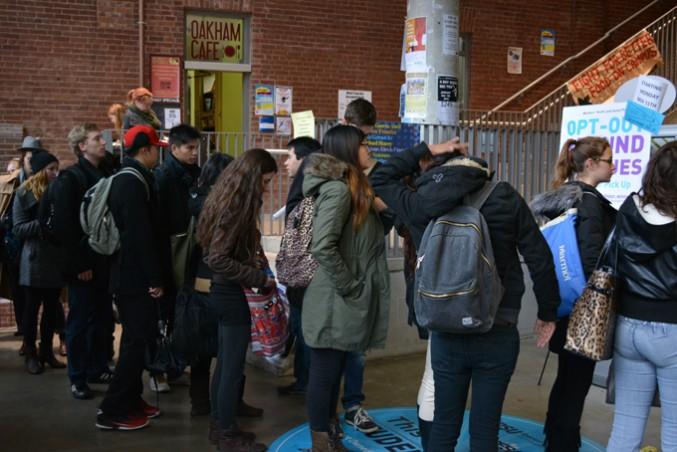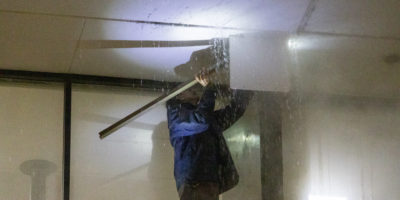By Keith Capstick
This year the Ryerson Students’ Union (RSU) collaborated with the university to deposit students’ health and dental opt-out directly into their RAMMS account — but some students say that this process is negatively impacting low-income students.
The opt-out money is deposited into the same account as tuition, therefore students who haven’t paid all of their winter tuition have to take an extra step and request a cheque to get to their money.
The RSU told The Eyeopener on Monday that they have put a plan in motion to allow students with outstanding winter fees to request a one-time withdrawal from RAMSS to get their money. The window to apply will be Nov. 11-18.
Obaid Ullah, the RSU’s vice-president operations, says that the decision was made to counteract last year’s long wait times for direct-deposit. This choice was made so students would receive their money as efficiently as possible, he said.
“Last year they tried a direct deposit system … and it failed miserably,” said Ullah. “The intent was for students to receive their money back and then you can request a refund [from RAMSS] and get it back if you wanted to, but then winter fees were put on. A few students are upset.”
Last year students waited until mid-November until they were able to gain access to their opt-out money. The incoming RSU executive, in cooperation with their new insurance broker, held a survey in September to figure out the best way to tackle this issue — a survey which they point to as their reasoning for this new deposit system.
Continuing Education Students’ Association of Ryerson (CESAR) President Denise Hammond said at Monday’s CESAR annual general meeting that Chang School students should have their cheques available for pick up next week.
“We chose to not do it through the university,” she said. “We believe that it’s important for you as a student who pays that fee, that if that fee is returned it should be returned to you and not to the university.”
But Ullah urges that “this won’t affect your OSAP in any way” and doesn’t see this affecting low-income students more so than others.
“A lot of low-income students already can’t opt out of the plan, just because they don’t have additional coverage, and without additional coverage you can’t opt out,” said Ullah. “So it’s mostly affecting people who have additional coverage.”
Some of the negative feedback that the RSU has received centres around students who count on these funds every year and may not have the financial stability to wait for the cheque, despite having pre-existing health and dental coverage.
Vajdaan Tanveer, a student who’s recently been critical of the RSU’s stance on tuition fees in alignment with the RSU oppositional group, Reignite Ryerson, shares these concerns.
“I feel that the particular changes that were made to the opt out plan for this year disproportionately harmed lower-income students,” said Tanveer.
Tanveer also expressed that although last year’s system wasn’t perfect, he was uncomfortable with the fact that the RSU worked in tandem with the university to make this new process come to fruition.
“The students’ union is an autonomous organization, so the fact that they’re getting so entrenched into the works of the university is also something that’s concerning,” said Tanveer.
But Ullah maintains that this has been a step forward from last year.
“Generally, from the feedback from the survey, students are happy with the process. There are a few students that were upset, I can understand where they’re coming from,” he said.
University registrar Charmaine Hack said winter tuition was actually charged two months later this year, despite the RSU originally speculating it had been charged earlier than usual.












Leave a Reply